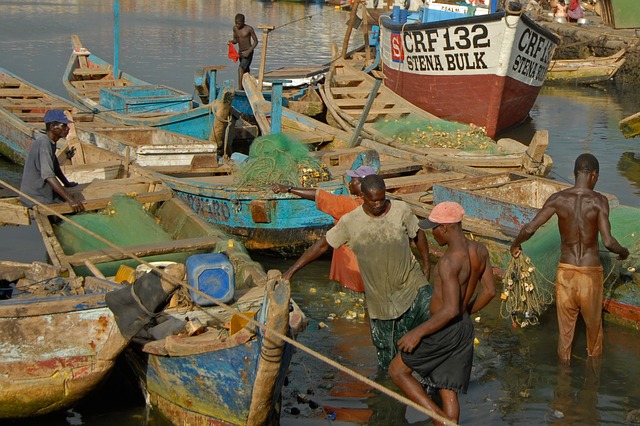Bordering the Atlantic Ocean and surrounded by the countries of Burkina Faso, Togo, and the Ivory Coast, Ghana has experienced many ups and downs over the years. Ghana’s economy was on the verge of collapse 30 years ago, but political and economic changes have turned things around, and Ghana is now considered one of the more stable nations in West Africa. Here are the top factors driving Ghana’s economic development.
Transition to Democracy
Formerly called the Gold Coast of Africa, Ghana became the first sub-Saharan nation to break free from colonial rule when it gained independence from Britain in 1957. Then, in 1992, Ghana adopted a new constitution and transitioned to a multi-party democracy. With this shift came more improvements, such as freedom of speech for both print and broadcast media, increased transparency and accountability for government activity, and reforms to Ghana’s economic system. Specifically, Ghana allowed:
• The purchase of cocoa by private entities in competition with the state-owned company
• The privatization of the coffee and cocoa trade
• The elimination of export levies on coffee
• Improvements in the country’s monetary and exchange rate policies
Export of Commodities
Ghana relies on exports as its number one source of foreign exchange. Long known for its cocoa and gold exports, oil has also become an important commodity. Offshore oil reserves were discovered in 2007 and provided a huge boost to Ghana’s economy when oil prices were high. The GDP growth in Ghana hit 15% in 2011, largely due to oil sales to India, Switzerland, China, South Africa, and the United Arab Emirates. More recently, declining oil prices have reduced the profitability of oil exports. Still, Ghana’s economy continues to benefit from exports of other commodities such as gold, cocoa, coconuts, cashews, and brazil nuts.
Increase in Migration
Many Ghanaians migrate to other countries in an effort to earn money and help support their families back home. Some move to neighboring African countries, but the majority travel further abroad. Top destinations include the United Kingdom, the Netherlands, Italy, Germany, other EU countries, Canada, and the United States.
Ghanaians choosing to migrate include a wide range of professions. Medical professionals, such as doctors, nurses, and dentists, are often drawn to the increased opportunities and higher incomes offered by other countries. Similarly, teachers, pharmacists, medical technicians, and skilled laborers often relocate for a better financial future.
While the individuals who migrate reap the direct rewards, the benefits are also felt by those still residing in Ghana. Many migrant workers use a service, like Sharemoney, to send part of their income back home to their families in Ghana. These remittances provide Ghanaian families with a steady flow of income that can be used for essential needs or invested in education and other activities to generate income down the road.
Experts say that remittances are also very important to Ghana’s economy. Other than exports, remittances are the country’s most significant source of foreign exchange. These payments also provide income redistribution because the money is often sent to poorer rural families in the country’s most depressed regions. Additionally, many migrant workers eventually return home and boost Ghana’s economy through job creation. According to a recent survey, more than half of the returning migrants launched their own companies and hired local Ghanaians to work for them.
Following a long history of political unrest and economic hardship, Ghana is now a great example of an African nation that has reformed and recovered. With its shift to a democratic form of government and its inflow of money from exports as well as from Ghanaians working abroad, the outlook for economic growth in Ghana is good.




